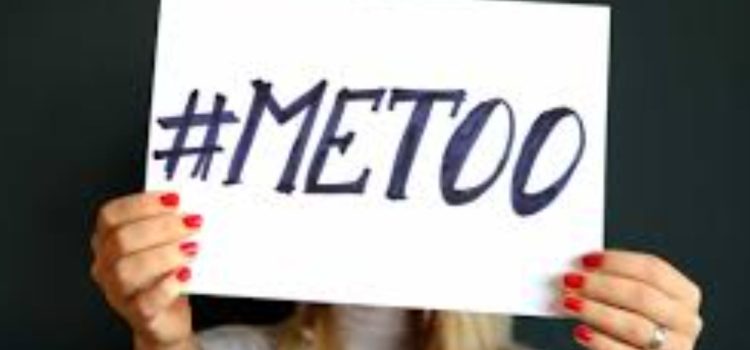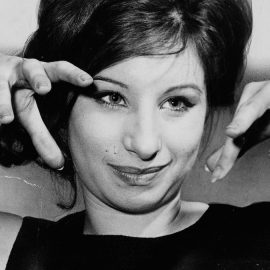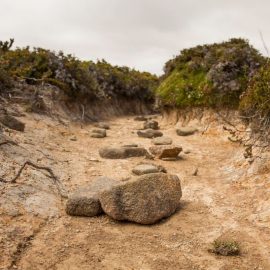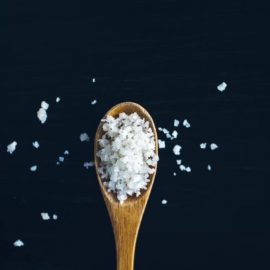

This article is an excerpt from the Shortform book guide to "Unbound" by Tarana Burke. Shortform has the world's best summaries and analyses of books you should be reading.
Like this article? Sign up for a free trial here.
What was the “me too” movement’s impact on the world? How did “me too” turn into a hashtag?
The toxicity that enveloped Tarana Burke’s community in Selma pushed her to found the “me too” movement. These developments had a major impact on Burke’s personal life and society as a whole.
Check out the impact the “me too” movement had on Burke and the world.
Burke Brought “me too” to Philadelphia—and Her Own Home
The betrayals and dead ends Burke met in Selma irreparably fractured her ties to that community, so she decided to relocate to Philadelphia, Pennsylvania. There, she got a job as a youth advocate and turned “me too” into a full-fledged program. Burke explains that this program consisted of four-step workshops designed to jumpstart the healing process for victims of childhood sexual abuse:
- Burke would begin by sharing a famous survivor’s account of sexual violence. She used these accounts to provide definitions of various types of sexual violence.
- Next, she’d reveal the survivor’s name, underlining the fact that many highly respected role models had suffered—and more importantly, recovered from—sexual violence.
- Then, she’d invite girls to share whether these stories resonated with them. If they didn’t want to speak aloud, she said they could discreetly write “me too” on a slip of paper. They could also decide to share their contact information for a follow-up conversation.
- Finally, Burke would explain the important role community plays in healing from sexual violence.
Leading these workshops equipped Burke with the tools she needed to jumpstart the “me too” movement’s impact, but more importantly, reach her child. Burke explains that she often asked Kaia if they’d been sexually abused, but she eventually realized that this point-blank approach was unlikely to elicit an honest response. So with her workshops in mind, she tried a different approach: She reminded Kaia that she loved them unconditionally and that they could share anything with her in writing if speaking it aloud was too difficult.
In response, Kaia wrote a note disclosing that they’d been sexually abused. Burke comforted Kaia while they cried and explained what happened, stressing that Kaia wasn’t at fault. Then, Burke opened up about her own victimization to show Kaia that they weren’t alone and that healing is possible.
In addition to helping her child begin healing from sexual violence, Burke’s involvement in the “me too” movement has made two other major differences in her life: First, although the work can trigger difficult memories and emotions, it’s also incredibly fulfilling and empowering. Burke explains that when it comes to coping with the sexual violence she endured, it helps to know that her pain has enabled her to serve a greater purpose (helping others heal). Second, Burke’s work with “me too” helped to heal her relationship with her mother. It forced her to open up honestly about her victimization and, when she and her mother ran into one of her childhood abusers, Burke felt for the first time that she had her mother’s full support.
Burke’s Hopes and Fears for “me too”
Burke explains that her grassroots “me too” movement eventually transformed into something much larger and that this transformation evoked both hopes and fears for the future of the movement. Let’s explore that transformation and its effects now.
How “me too” Became #MeToo
Burke explains that her “me too” movement became a national phenomenon shortly after she moved to Philadelphia. She promoted it via Myspace, which created an influx of questions about how survivors could get involved or access resources. But the movement didn’t become truly viral until 2017, 12 years after Burke established it. In the wake of accusations levied against director Harvey Weinstein, actor Alyssa Milano tweeted a request for any woman who’d experienced sexual violence to use the hashtag #MeToo. Milano hoped that this would illustrate how pervasive sexual violence was. The hashtag exploded in popularity, leading to what’s known as the #MeToo movement.
When Burke learned about the #MeToo hashtag, she feared that wealthy white women were co-opting her movement, which was intended to prioritize Black people’s healing. To some extent, she says, that’s exactly what happened: The #MeToo hashtag focused national attention on wealthy white women’s experiences of sexual violence, even though Black girls, women, and nonbinary people suffer disproportionately higher rates of sexual violence and are less likely to access support and healing resources. However, Burke also says that #MeToo paved the way for victims who felt alone or ashamed to speak their truth and make healing connections with a community of survivors—in this respect, her original intentions for the movement were realized.
Burke’s Work on Surviving R. Kelly
Burke has lent her expertise on healing from sexual violence to projects outside her “me too” movement. For example, she contributed to the Surviving R. Kelly docuseries, which detailed R&B artist R. Kelly’s serial abuse of Black girls and women. Burke says that she hoped this docuseries would create an opportunity for honest, healing conversations about sexual violence in the Black community, empower Black women to speak up and begin healing, and encourage Black men to join the fight against sexual violence. However, the docuseries provoked significant backlash from the Black community, and she was accused of hating Black men.
Burke lists a few reasons for the backlash that resulted from Surviving R. Kelly: First, the Black community often protects men who are accused of sexual violence. This tendency evolved from a history of white women falsely accusing Black men of rape, which led to the men’s incarceration or death. The community is especially likely to protect Black men who make valuable contributions to Black culture—both R. Kelly and James Bevel, who we mentioned earlier, fall into this category. Protecting these men often amounts to silencing or scorning their Black female accusers. Second, because white racists view Black people as a homogenous group, Black people are incentivized not to draw attention to any Black person’s moral failings.
Burke explains that since neither the #MeToo movement nor the fallout of the Surviving R. Kelly series created space for the Black community to begin healing from sexual violence, she continues to promote that healing from inside the community-focused “me too” movement. She hopes that by continuing to share her story and work with individuals within her community, she can foster a supportive environment for Black survivors of sexual violence and encourage a culture of accountability for abusers.

———End of Preview———
Like what you just read? Read the rest of the world's best book summary and analysis of Tarana Burke's "Unbound" at Shortform.
Here's what you'll find in our full Unbound summary:
- The origin of the viral phrase “me too”
- What Tarana Burke did to heal from the experience of childhood sexual abuse
- The story of the #MeToo movement






